Creating the most advanced film heaters for LiDAR sensor covers; latest tech developments
The automotive industry is rapidly transforming. Advancements in LiDAR sensor technology are significantly improving driving safety and comfort while paving the way for fully autonomous driving. However, harsh weather conditions such as snow, ice, and fog, can obstruct the LiDAR sensor covers, making accurate LiDAR sensor ranging a challenge. To overcome this obstacle and enhance the reliability of LiDAR in adverse weather, Canatu has developed a state-of-the-art film heater that offers efficient deicing and anti-fogging of the LiDAR sensor cover.
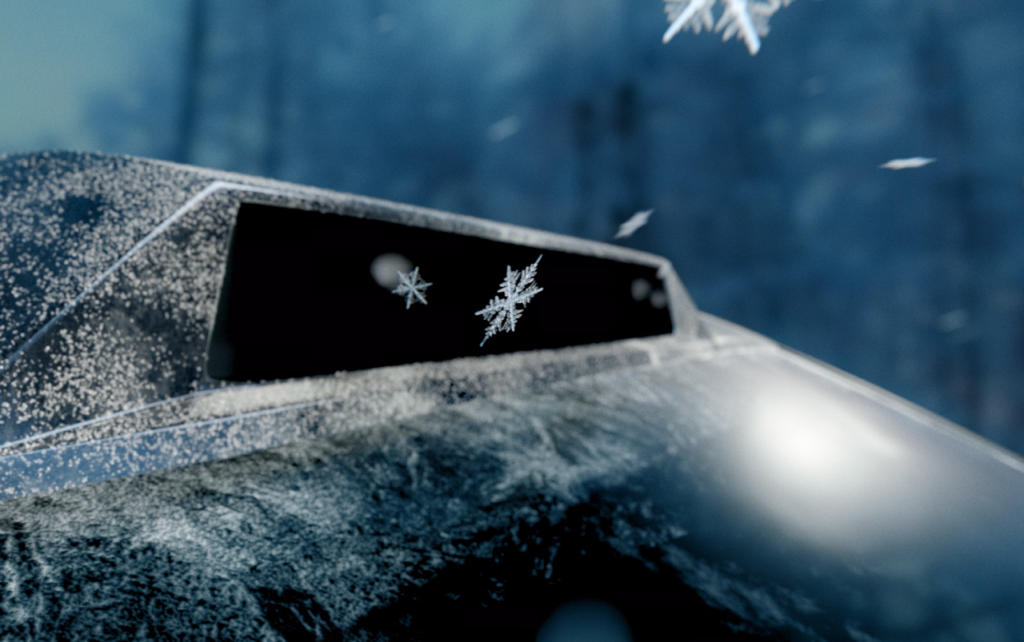
Importance of a clear LiDAR sensor
Automotive LiDAR is a key technology in Advanced Driver Assistance Systems (ADAS) and autonomous driving (AD). LiDAR sensors enable vehicles to “see” their surroundings and navigate with greater precision than human drivers. A LiDAR sensor works by emitting laser pulses and measuring the time it takes for the light to bounce back after hitting an object. This data is then used to create detailed 3D mapping of the vehicle’s surroundings in real-time.
While LiDAR works well in mild climates, such as in sunny California or Southern France, harsh weather challenges its reliability. In Nordic regions like Finland, where freezing temperatures and blizzards are the norm, or in the high-humidity climates of Southeast Asia, the LiDAR sensor field of view (FOV) can be obstructed by snow, ice, and fog. These obstructions cause laser pulses to scatter or be absorbed, resulting in inaccurate data, making it difficult for the LiDAR sensors to accurately measure and detect objects in the road.
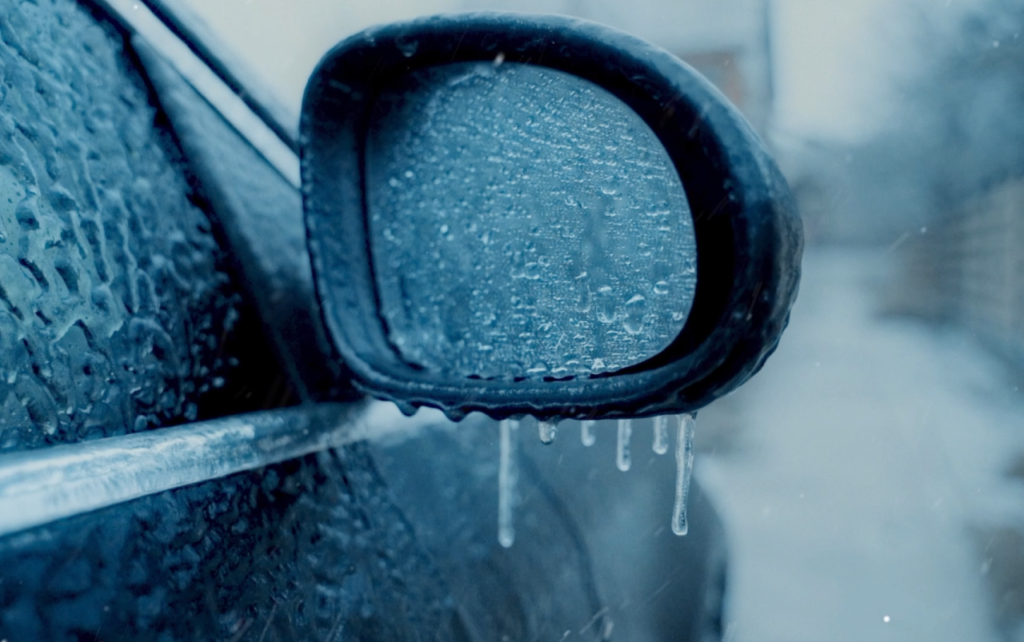
The Canatu film heater for LiDAR plays a pivotal role in the overall reliability of LiDAR. Made using the most advanced CNT (carbon nanotubes), the Canatu film heater addresses the effects of harsh weather on LiDAR reliability head on. It provides fast, even, and power-efficient deicing and anti-fogging of the LiDAR sensor cover, enabling autonomous driving in any weather.
By ensuring reliable LiDAR performance in any weather, the Canatu film heater is an essential component in supporting the wide-spread adoption of automotive LiDAR and autonomous driving.
The most advanced transparent film heater for LiDAR
Canatu is renowned for creating the most advanced carbon nanotubes for industry-transforming products. By applying this expertise in applying CNT for different uses, Canatu helps forerunner companies in overcoming industry challenges through innovative products, including film heaters for the automotive industry. Today, Canatu is focused on applying and refining its optically transparent film heaters for LiDAR, camera, and headlamp applications.
To keep pace with the rapidly evolving automotive industry and advancements to ADAS and LiDAR, Canatu has made several upgrades to improve its technology and manufacturing capabilities. First, to improve performance Canatu has developed a new CNT synthesis which provides 80% better power density (heating performance) compared to the previous generation with the same optical design. Then to increase capacity, Canatu has upgraded its fully-automated film production line by adding new reactor capacity and increasing automation levels, resulting in 3x higher capacity and 2x faster CNT film production. Additionally, in collaboration with industry leaders, Canatu has created validated reference stacks and designs for plastic and glass solutions.
Key benefits of the most advanced Canatu film heaters for LiDAR
Superior optical performance: The Canatu film heater is LiDAR transparent and wire free. There are absolutely no metallic wires in the field of view that could cause optical distortion. The Canatu film heaters exhibit low reflection and virtually no haze, owing to the unique properties of the material.
Even and power-efficient heating: The Canatu film heater offers even and power-efficient heating across the full surface without any optical distortion. The Canatu film heaters are more energy-efficient than traditional wire heaters using 40% less power for same heating performance.
Design freedom: The Canatu film heaters are always customized to customer requirements. Key design parameters include LiDAR type, heating and optical requirements, size of the field of view, and available input voltage. Due to unique material properties, the Canatu film heaters are highly stretchable (200%) and bendable (1mm radius), enabling design freedom for even the most complex geometries.
Integration flexibility: The film heaters can be film insert molded (FIM) inside the plastic stack creating robust and reliable structure without compromising on optical performance. They can also be laminated on or in between glass surfaces, using an optically clear adhesive (OCA).
Download technical data
Download data sheet to learn key benefits, technical parameters and integration options.

Download technical data
Canatu film heaters, paving the way forward
The Canatu film heater is a key enabling technology for LiDAR. Canatu actively collaborates with forerunner OEMs in developing film heaters for ADAS. It expects to ramp up mass production of the first camera deicing system this year and is involved in multiple LiDAR deicing development projects with OEMs aiming for SOP in 2024 and beyond. As Canatu continues to develop film heaters for ADAS deicing and anti-fogging in collaboration with industry partners, its impact will drive broader LiDAR adoption, advancing autonomous driving in any weather.
Contact

Send us a message
Related content
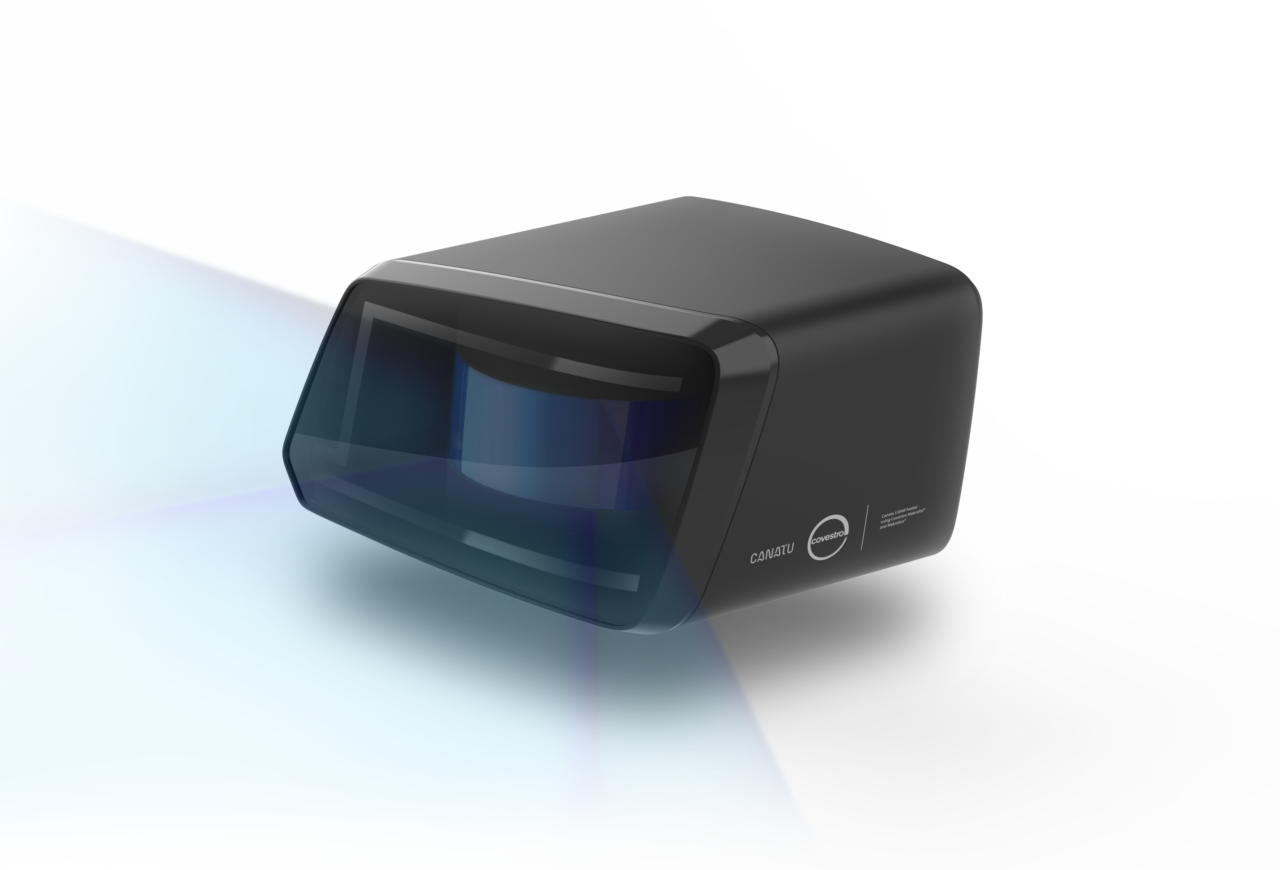
Canatu and Covestro have brought together their world-leading expertise in flexible transparent film heaters, thermoplastic polymers and film insert molding processing to create a state-of-the-art transparent film heater for LiDAR. See press release.
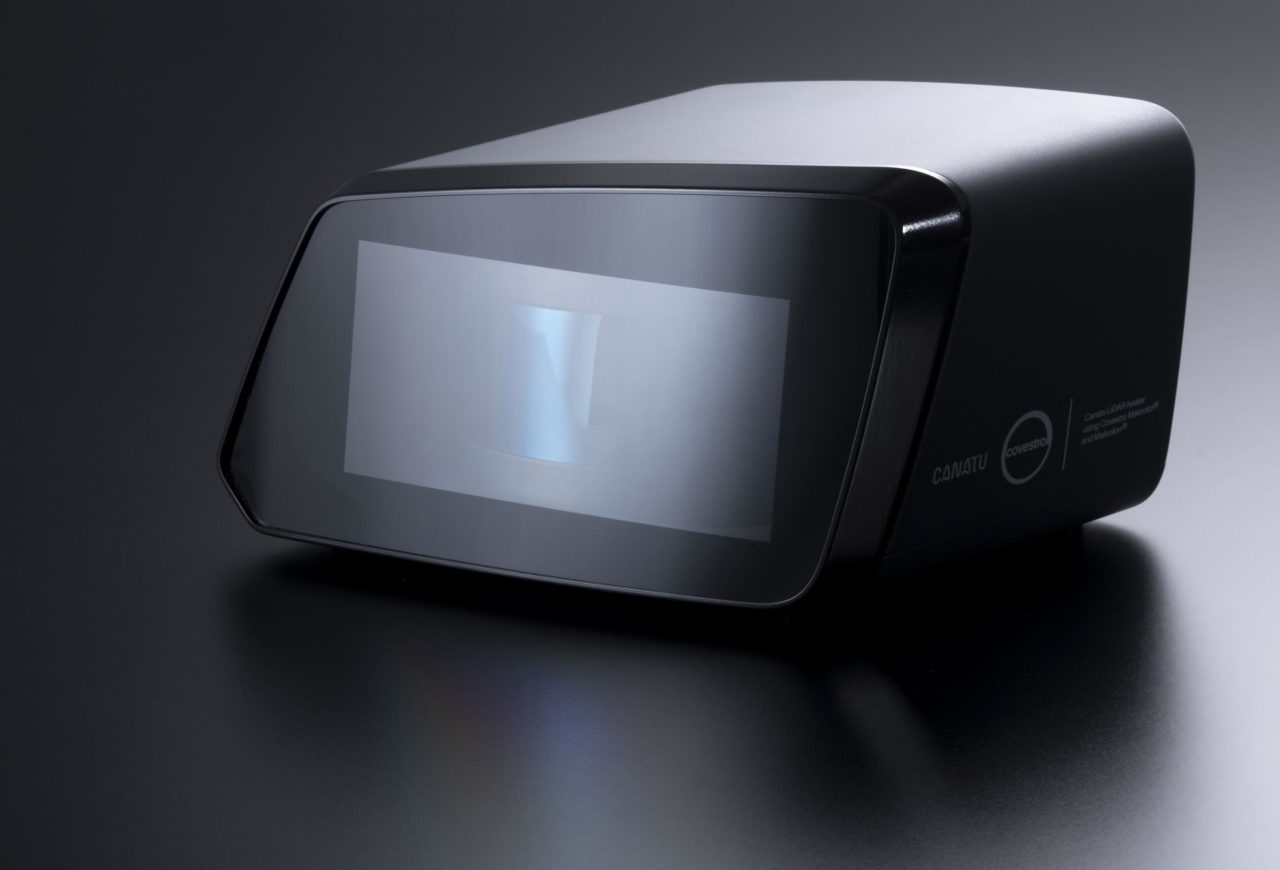
LiDAR systems are vital for autonomous vehicles, but ice, snow and fog can obstruct their ranging sensors. Together with Covestro, we developed a LiDAR sensor cover lens made of Covestro Makrolon® AG polycarbonate resin with an integrated Canatu film heater on Makrofol® PC film. See case study.
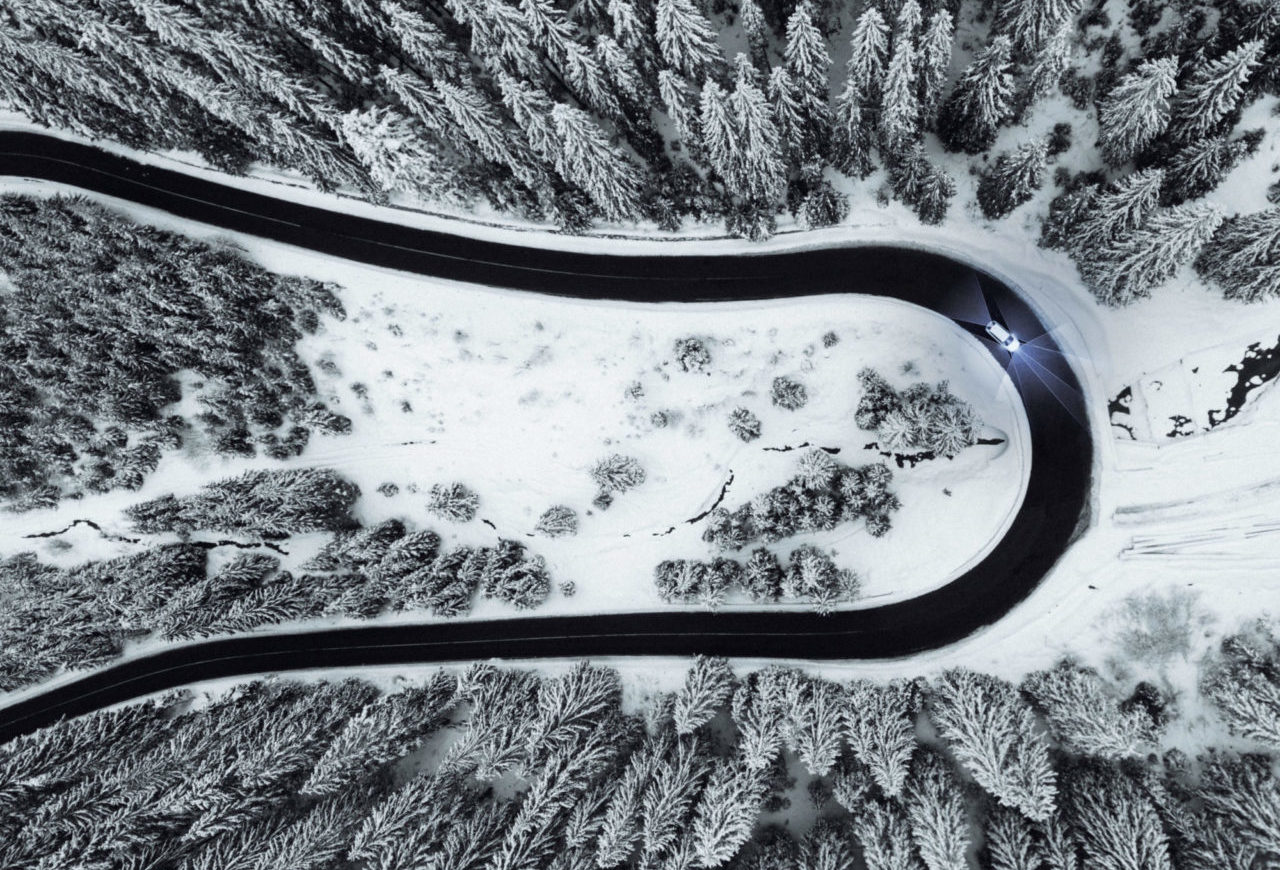
LiDAR sensors are a key technology in Advanced Driver Assistance Systems (ADAS). Together with cameras and radars, LiDARs enable understanding the environment in real time. LiDAR heaters based on the unique Canatu CNT technology ensure reliable LiDAR performance in any weather. See the product.